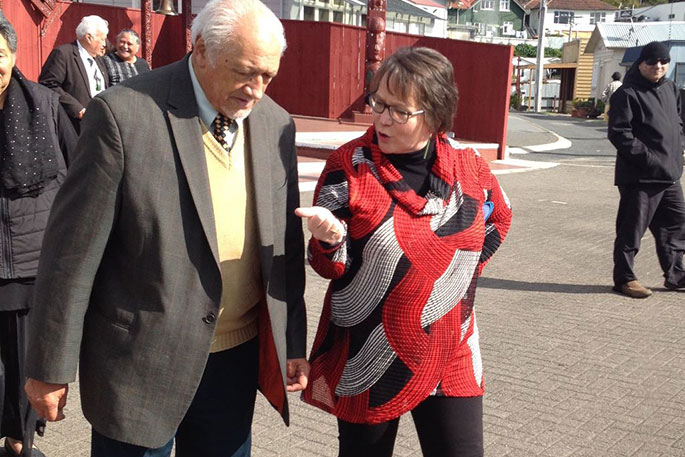Steps are being taken to urgently address concerns around a system of care for children in New Zealand.
A public meeting of leading Maori and Rotorua citizens was delivered this strident message by the Minister for Children, Tracey Martin, in Rotorua.
Referring to as a 'child crisis system”, the Minister says the country had never had a children's protection system.
'We've allowed our families to fall in crisis and we've rushed in and uplifted children and taken them out and placed them somewhere else and then go, ‘phew', they've gone, they've taken another child.”
Taking her cue from a long-time friend, lawyer and political activist Annette Sykes who says Maori is in a 'state of emergency”, Tracey says the failure to look after children can't continue.
She took politics out of the topic because 'children are not the playthings of politicians”.
'It's hard when the history is so bleak to stand in front of people and say we have a future,” Tracey told a gathering of 60 seated at the Te Papaiouru Marae at Ohinemutu on Thursday).
Something different must be created to resolve the problem.
Quarterly reports were now being carried out about children's welfare. They had never before been undertaken.
'Never before has the state been honest enough to say, and to give you a document and to put in writing, that these children had been put in our care and were harmed, we failed them….
'Never before has the state done that.”
Out of 103 children of the last quarterly report who had experienced harm, the majority were living with their parents and their families.
'When children come into the care of Oranga Tamariki – and there are 6400 at the moment (200 in the youth justice part of it) – the majority of them are still at home with Mum and Dad or they are living with whanau or other families,” Tracey says.
'And that is because we don't take children into institutions anymore.”
When courts now remand such people, they are remanded to somebody's home.
'They've been doing that for over a year,” Tracey says. 'And the fact that the majority of you will not know about it means so far it is working. But it's risky because these are young people that come from places of trauma.”
Tracey says children were taken from homes and into care, which is traumatic in itself.
Sometimes such moves did not go perfectly.
'That's when you get a headline about a 12-year-old on a stolen bike with a hunting knife riding around the Hawke's Bay. And people say why didn't Oranga Tamariki keep hold of that young person?”
The big news this year is that $1.1billion over the next four years has been allocated to Oranga Tamariki to change their operating model, 'to be different than they've ever been before”.
Tracey says nothing will change if Maori don't have the opportunity to design the model.
It's about trusting Maori enough to say 'design it”, as Nga Puhi did in the Far North.
During the question and answer session on the marae floor, one speaker suggested removing the name Oranga Tamariki.
But Tracey says that is the name that was given and would not change.



0 comments
Leave a Comment
You must be logged in to make a comment.